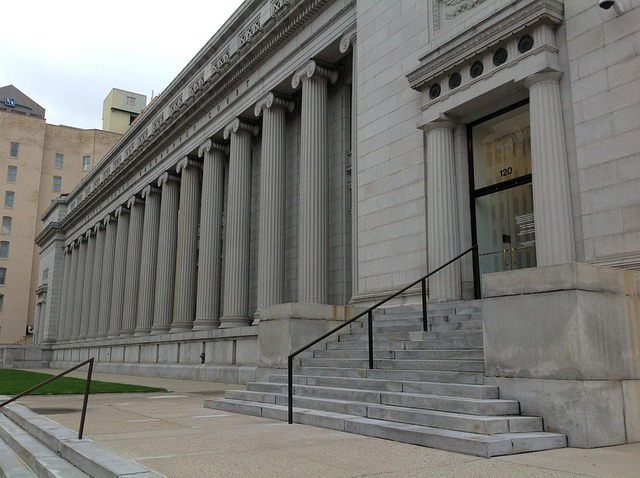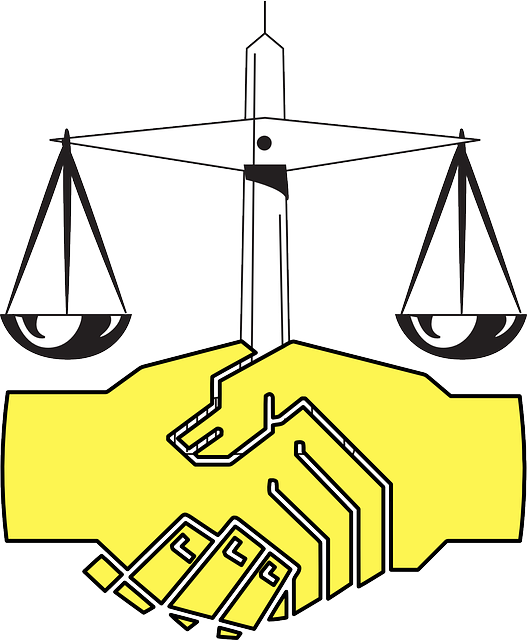
Category: Highlands Ranch Colorado Guardianship and Conservatorship
Highlands Ranch Colorado Guardianship and Conservatorship: A Comprehensive Analysis
Introduction
In the intricate landscape of legal and social structures, guardianship and conservatorship stand as vital mechanisms for ensuring the well-being and rights of individuals who may require additional support. Among the diverse offerings, the practices specific to Highlands Ranch, Colorado, have emerged as a model for effective protection and stewardship. This article delves into the intricacies of Highlands Ranch Colorado Guardianship and Conservatorship, exploring its definition, historical context, global impact, economic considerations, technological advancements, policy framework, challenges, successful case studies, and future prospects. By examining these facets, we aim to provide a comprehensive understanding of this critical area of law and social welfare.
Understanding Highlands Ranch Colorado Guardianship and Conservatorship
Definition and Core Components
Highlands Ranch Colorado Guardianship and Conservatorship refer to legal processes designed to protect individuals who are unable to manage their own affairs due to age, disability, or other circumstances. This includes appointments of guardians for adults with limited decision-making capacity and conservators for individuals (often minors) whose property or financial affairs require management.
Key components:
-
Guardianship: Involves making personal decisions on behalf of an individual, ensuring their safety, health, and welfare. Guardians may make choices related to education, medical care, housing, and social activities.
-
Conservatorship: Concerns the management of financial and property affairs. Conservators are responsible for handling assets, investments, budgeting, and ensuring the financial well-being of the protected individual.
-
Protective Measures: These legal arrangements include oversight, regular reporting, and accountability to ensure the rights and best interests of the protected person are maintained.
Historical Context
The concept of guardianship has deep roots in common law, with early examples dating back to medieval England. Over time, these principles evolved to meet the changing needs of society, particularly in relation to the care of minors and individuals with disabilities. In Colorado, as in many U.S. states, the modern framework for guardianship and conservatorship was established through a series of legislative reforms aimed at protecting vulnerable populations while respecting individual rights.
Significance and Broader Landscape
Highlands Ranch Colorado Guardianship and Conservatorship plays a crucial role in several aspects:
-
Protection: It safeguards the interests of individuals who may lack the capacity to make informed decisions, ensuring their basic needs are met and their rights are respected.
-
Empowerment: For those capable of managing certain aspects of their lives, guardianship and conservatorship can provide a framework for delegating specific responsibilities while maintaining autonomy in other areas.
-
Legal Clarity: These arrangements offer clarity and structure, guiding decision-making processes and minimizing potential conflicts or misunderstandings.
Global Impact and Trends
The practices of Highlands Ranch Colorado Guardianship and Conservatorship have gained international recognition as a balanced approach to protecting vulnerable individuals while promoting their independence. Several global trends shape its trajectory:
-
Human Rights Focus: There is a growing emphasis on human rights and the inherent dignity of all individuals, regardless of age or ability. This influences guardianship practices by promoting the protection of personal autonomy and decision-making rights.
-
Cultural Diversity: With increasing multicultural societies, guardianship laws are being adapted to respect diverse cultural beliefs and family structures, ensuring fairness and inclusivity.
-
Technological Integration: The digital age has introduced new considerations, such as online identity management and cybersecurity, which impact how guardianship is administered and monitored.
-
Global Best Practices: International organizations share knowledge and best practices, allowing countries to learn from successful models like Highlands Ranch’s approach.
Economic Considerations
Market Dynamics
The economic implications of Highlands Ranch Colorado Guardianship and Conservatorship are multifaceted:
-
Legal Services: The process involves legal fees, which can vary based on complexity and the type of arrangement. This influences individuals’ and families’ financial planning and decision-making.
-
Caregiving Costs: For those requiring personal care services, guardianship may involve additional expenses, impacting family budgets or necessitating public assistance.
-
Property Management: Conservators manage assets, which can include real estate, investments, and businesses. This aspect has significant economic implications, especially for high-net-worth individuals.
Investment Patterns
Guardianship and conservatorship can influence investment strategies:
-
Risk Tolerance: Guardians may need to make financial decisions on behalf of others, affecting their risk appetite and investment choices.
-
Asset Protection: Some individuals establish trusts or other legal entities to protect assets from potential liabilities, ensuring financial security for themselves and their protected charges.
-
Estate Planning: Guardianship arrangements can be integrated into comprehensive estate planning strategies to ensure a smooth transition of assets and responsibilities.
Technological Advancements
Digital Tools for Management
Technology has transformed various aspects of guardianship and conservatorship:
-
Online Monitoring: Software solutions allow conservators to track financial transactions, ensuring compliance with court orders and managing budgets efficiently.
-
Digital Identity: Protecting online identities is crucial, especially for individuals under guardianship, as it prevents unauthorized access to personal information.
-
Telehealth and Remote Care: The COVID-19 pandemic accelerated the adoption of telehealth, enabling remote monitoring and care coordination for those under guardianship.
Blockchain and Smart Contracts
Emerging technologies like blockchain offer potential solutions for:
-
Secure Record-Keeping: Immutable ledgers can store sensitive information securely, ensuring transparency and reducing fraud risks.
-
Automated Decisions: Smart contracts could automate certain financial decisions, providing efficiency and minimizing the need for direct involvement from conservators.
Policy Framework
Legal Provisions in Colorado
Colorado’s legal framework for guardianship and conservatorship is established through state statutes and court rules:
-
Appointment: Individuals or family members can petition the court to appoint a guardian or conservator, providing specific reasons and evidence for the request.
-
Types of Arrangements: The laws differentiate between temporary and permanent guardianship/conservatorship, as well as different levels of authority and responsibility.
-
Accountability: Courts oversee guardians and conservators, requiring periodic reporting and holding them accountable for their actions.
Collaborative Approach
The Highlands Ranch approach emphasizes collaboration among stakeholders:
-
Multi-Disciplinary Teams: Guardianship cases may involve social workers, attorneys, medical professionals, and financial advisors working together to create comprehensive plans.
-
Community Support: Local community services and non-profits play a role in providing resources and support for individuals under guardianship, fostering integration and independence.
Challenges
Balancing Rights and Responsibilities
One of the primary challenges is striking a delicate balance between protecting vulnerable individuals and respecting their rights and autonomy:
-
Overprotection vs. Independence: Ensuring safety while allowing for personal growth and decision-making can be challenging, requiring a nuanced approach.
-
Conflict of Interest: Guardians or conservators may face conflicts between their duties and personal interests, necessitating strict oversight and transparency.
Access to Legal Services
Access to affordable legal counsel is a barrier for many individuals seeking guardianship or conservatorship:
-
Cost Implications: Legal fees can be prohibitive, especially for low-income families, leading to delays or inadequate representation.
-
Pro Bono Services: While some legal aid organizations offer pro bono services, the demand often exceeds available resources.
Successful Case Studies
Empowering Young Adults with Disabilities
A case study in Highlands Ranch involved a young adult with Down syndrome who, upon reaching adulthood, required support for independent living. Through guardianship arrangements, her family was able to secure appropriate housing, access community services, and manage her financial affairs. This enabled her to transition successfully into adulthood while maintaining control over her life.
Conservatorship for High-Net-Worth Families
Another notable case involved a high-net-worth family seeking conservatorship for their aging parent. The guardianship allowed for centralized management of diverse assets, including real estate holdings and investments, ensuring financial security and continuity while respecting the parent’s autonomy in personal decisions.
Future Prospects
Technological Innovations
The future of Highlands Ranch Colorado Guardianship and Conservatorship is likely to be shaped by ongoing technological advancements:
-
Artificial Intelligence (AI): AI could assist in decision-making processes, providing data-driven insights and recommendations for guardians and conservators.
-
Digital Identity Management: Enhanced digital identity solutions will be crucial for protecting the online privacy of individuals under guardianship.
Adaptive Policy Frameworks
Policy makers should consider:
-
Regular Reviews: Periodic assessments of the guardianship system to ensure it remains responsive to changing societal needs and technological advancements.
-
Public Education: Raising awareness about guardianship options can empower individuals and families to make informed decisions.
-
Collaborative Practice Models: Encouraging multi-disciplinary collaboration can lead to more holistic and effective guardianship plans.
FAQ
Q: Who can be appointed as a guardian or conservator in Colorado?
A: In Colorado, any adult (typically referred to as a “petitioner”) can petition the court to become a guardian or conservator for another individual (known as the “protected person”). Petitioners must provide evidence demonstrating why they are suitable for the role and the protected person’s needs.
Q: What are the costs associated with setting up guardianship/conservatorship?
A: Costs can vary widely depending on factors such as complexity, duration, and legal fees. Legal services, court filing fees, and ongoing administrative expenses are involved. Some low-income individuals may qualify for financial assistance through legal aid organizations or state programs.
Q: How often do guardians/conservators need to report to the court?
A: Reporting requirements vary based on the specific order and circumstances. Typically, annual or semi-annual reports are required, detailing financial transactions, decisions made, and any changes in the protected person’s situation.
Q: Can a guardian/conservator make medical decisions for the protected person?
A: Yes, under certain conditions. Guardianship orders can include specific authority to make medical decisions on behalf of the protected person, but these powers are subject to court oversight and must be in the best interest of the individual.









